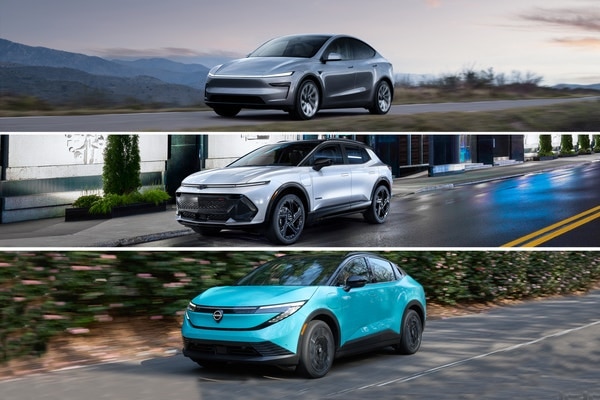Overview
The Chevrolet Bolt EV debuted as an all-electric hatchback in 2017 and quickly gained a loyal following as one of the most affordable electric vehicles. In a rather baffling move, GM canceled the Bolt EV and the larger Bolt EUV at the end of 2023. Thankfully that decision has been reversed and we're expecting an all-new second generation for the 2025 model year. There's very little information on the next Bolt EV, but GM says it will continue as an affordable EV with adequate range.
Edmunds spotlight: Affordability and range
EVs are more expensive than their internal combustion engine counterparts, and even if you take into account the fuel savings you'll reap over the years, the price can be a tough initial pill to swallow. Historically, the Chevy Bolt EV has been one of the most affordable ways to make the switch and, as an American-made EV, it was eligible for some favorable government incentives. We're hopeful the new model will remain budget-friendly and fairly robust with range. The first generation offered an EPA-estimated range of 259 miles on a charge, but in real-world testing we exceeded that figure, going 278 miles. We expect the next Bolt to improve upon these numbers.
Competitors to consider
If Bolt EV pricing remains comparable to the first generation, we expect it to start in the $30,000 range. The biggest threat at that price is the new 2025 Volvo EX30, which offers up to 275 miles of estimated range. Other affordable EVs have significantly less range. The Nissan Leaf maxes out at 212 miles, while the tiny Mini Cooper SE is rated at only 114 miles. For a few thousand more, we point shoppers to the Hyundai Kona Electric with its range of about 260 miles (though it went 308 miles in the Edmunds EV Range Test). Among all of these choices, the Bolt EV seems best positioned to secure the federal EV tax credit.




